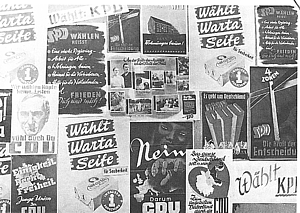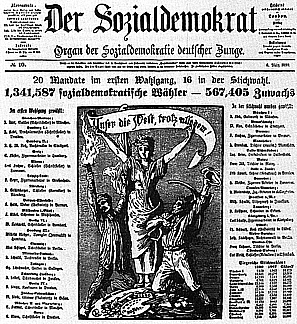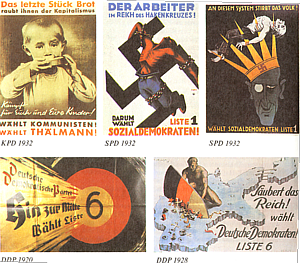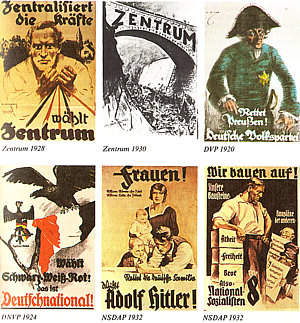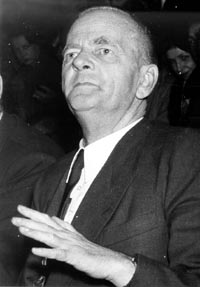
Kurt Schumacher (1895-1952)
- father
in retail
- 1914: emergency
high school diploma
wounded early in WWI, arm amputeted
- 1918: studying
law, joins SPD
- 1920: editor
of SPD paper
- 1924: leadership
in Stuttgart SPD and opposition leader in the Wurtemberg parliament
- 1930: youngest
SPD member in Reichstag
- 1932: very
outspoken against NSDAP
- 1933-1943,
1944: in concentration camps (released for health reasons)
- 1945: leadership
of Hanover SPD, then West German SPD
- 1949: elected
to Bundestag, but not as chancellor or president
|
|
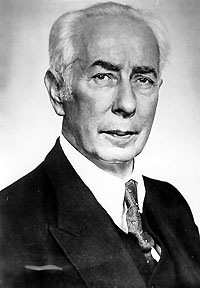
Theodor Heuss (1884-1963)
- son of
an engineer
- 1905: doctorate
in macroeconomics
reporter, then editor of a liberal paper (Friedrich Naumann,
FVP, then DDP)
- 1919 Berlin
city council, professor, editor
- 1924-28:
DDP member of Reichstag
- 1930-33:
DSP member of Reichstag
- 1932 book
Hitler's Path banned and burned in 1933
- 1933-45:
writes biographies, cultural articles
- 1945: Minister
of Culture in Wurtemberg-Baden
- 1946: member
of constitutional convention in W-B.
- 1949: beats
Schumacher 47% to 39% in West German presidential election
|
|
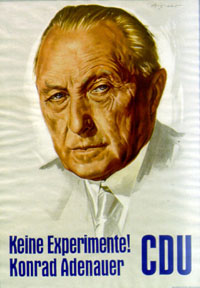
Konrad Adenauer (1876-1967)
- son of
a Catholic church official
- 1901: finished
law school, begins legal career
- 1905: joins
Center party
1906: Cologne city council
1909: Cologne vice mayor
1917: lord mayer (age 41)
- 1918: delegate
in Prussian parliament
- 1923: possibility
of independent Rhineland
- 1926: possible
candidate for chancellor
- 1933-45:
"inner emigration" (brief arrest)
- 1945: mayor
of Cologne
- 1946: chairman
of newly founded CDU
- 1949: elected
to Bundestag; obtains one more vote for chancellor than Schumacher
|
|
